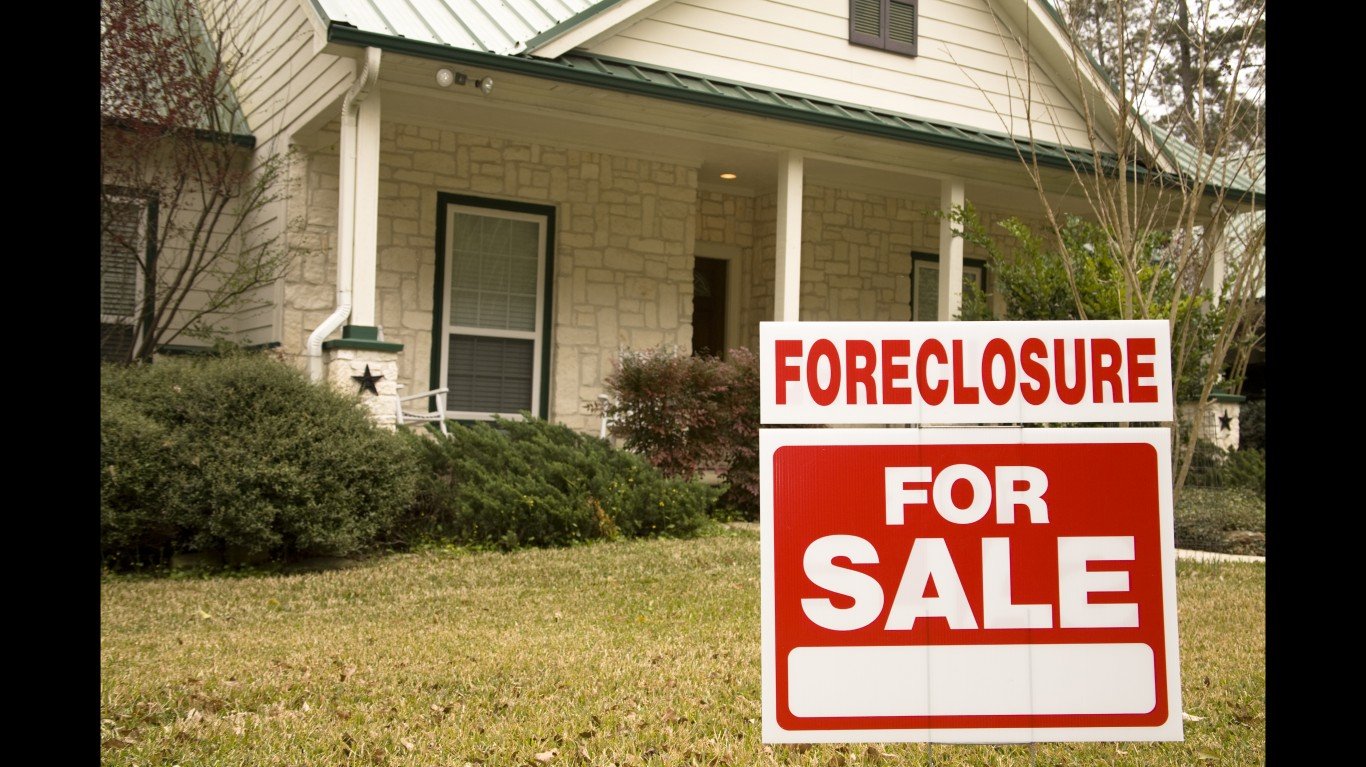

As unemployment figures skyrocket, experts expect mortgage delinquencies and foreclosures to follow along. So what does this mean for holders of Federal National Mortgage Association (FNMA), aka Fannie Mae, stock. The government-sponsored enterprise (GSE) purchases mortgage loans from lenders and pools them into mortgage backed securities.
Delinquencies on one-to-four-unit residential properties increased to a seasonally adjusted rate of 4.36% in the first quarter of 2020, according to the Mortgage Bankers Association. “Mortgage delinquencies jumped by 59 basis points, which is reminiscent of the hurricane-related, 64-basis-point increase seen in the third quarter of 2017,” said Marina Walsh, an MBA vice president.
As the year unfolds, the mortgage market forecast gets worse. “By the second half of 2021, we estimate a fourfold increase in the serious delinquency rate, barring additional policy efforts to assist borrowers in financial distress,” said Frank Nothaft, chief economist at CoreLogic, which tracks property data.
Global forecaster Oxford Economics predicts that 15% of homeowners will fall into delinquency. That would rival the 10% who fell behind in the 2008 financial crisis.
It’s a sad turning point for the industry, following two years of declining delinquency rates. Before the coronavirus hit, February marked the 26th straight month that delinquency rates had fallen, according to CoreLogic.
Payment Freezes and Foreclosure Moratoriums
This week, Fannie Mae and Freddie Mac (FMCC) extended a moratorium on foreclosures through at least June. Backstopping about $5 trillion in U.S. home loans, the mortgage giants in March suspended mortgage foreclosures through May 17. Some analysts think an extension beyond June is likely.
The coronavirus stimulus bill passed in March allows homeowners to delay their mortgage payments if those loans are backstopped by Fannie or Freddie. As of May 3, about 4 million people were on mortgage forbearance plans, according to the MBA. At Fannie Mae, 7% of its single-family loans were in forbearance as of April 30.
Also this week, the Federal Housing Finance Agency (which oversees Fannie and Freddie) cleared up the timetable for repaying missed payments. Some consumer advocates feared the entire backlog would be due at the end of forbearance, a tough scenario for anyone struggling financially. But a new program “allows them to make up missed forbearance payments when they sell their home or refinance,” said FHFA Director Mark Calabria.
Some states have issued their own orders, requiring mortgage lenders to work out payment delays with borrowers, and/or forbidding foreclosure for defaults. It’s all part of an effort to help people keep their homes, and to keep the real estate market afloat.
“The next six months will provide important clues on whether public and private sector countermeasures–current and future–will soften the blow and help us avoid the protracted, widespread foreclosures and delinquencies experienced in the Great Recession,” said Frank Martell, president and CEO of CoreLogic.
To minimize risk, lenders are also tightening requirements for new loan applicants. Mortgage rates are at record lows, but getting a loan now isn’t easy. Lenders are increasing their credit score and down payment requirements.
What’s Next in Washington
The House is expected to vote Friday on a massive new coronavirus relief bill. So far, the Senate has declined to take up a second stimulus bill, with Republicans citing the exploding national debt. President Trump has signaled an openness to some form of additional stimulus, but hasn’t directly supported the House package.
The $3 trillion package includes $175 billion in aid for renters and homeowners. It would create a new homeowners assistance fund with $75 billion.
House Democrats say the majority of that aid would go to homeowners with incomes under 80% of the local median. The program is designed to benefit both federally-backed and private home loans.
Fannie Mae’s Outlook
On May 1, Fannie Mae reported net income of $461 million for the first quarter of 2020, compared with $4.4 billion in the previous quarter. In its Q1 report, Fannie Mae said it “expects the impact of the COVID-19 national emergency to continue to negatively affect its financial results and contribute to lower net income.”
All this uncertainty could delay the Trump administration’s plans to return Fannie Mae and Freddie Mac to private ownership. Both were placed under federal conservatorship in 2008 following an injection of $190 billion in bailout funds. About 20% of Fannie Mae stock trades over-the-counter and the remaining 80% of preferred stock is owned by the federal government.
In December, the government was reportedly talking to Wall Street firms about IPOs for Fannie and Freddie. That doesn’t seem like a likely scenario in this environment. Should the Democrats win the White House in November, some observers think they would pull back on the privatization effort.
Fannie Mae was trading at $1.54 Friday morning. The stock is down over 50% year to date. The current analysts’ consensus is Hold. Without an IPO or some other federal intervention, Fannie’s stock is dead money.
Take This Retirement Quiz To Get Matched With An Advisor Now (Sponsored)
Are you ready for retirement? Planning for retirement can be overwhelming, that’s why it could be a good idea to speak to a fiduciary financial advisor about your goals today.
Start by taking this retirement quiz right here from SmartAsset that will match you with up to 3 financial advisors that serve your area and beyond in 5 minutes. Smart Asset is now matching over 50,000 people a month.
Click here now to get started.
Thank you for reading! Have some feedback for us?
Contact the 24/7 Wall St. editorial team.



